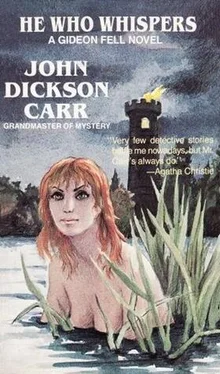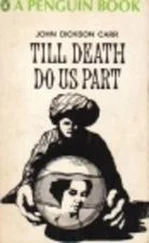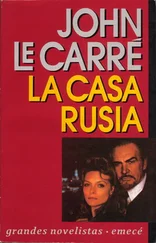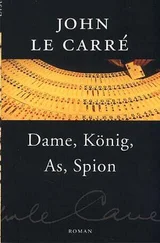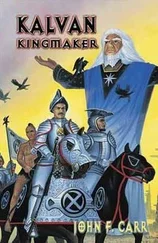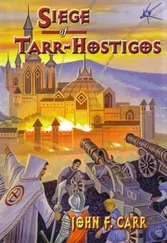“Not for tonight, no. But what difference does that make? What is all this? Why shouldn't I ask Miss Seton to come here and stay as long as she likes?”
“Because you will die,” answered the other simply. “You and your sister will both die.”
Chapter IX
Even more white, very white, glimmered Rigaud's face under the rising moon, whose light now touched the water beneath them.
“Will you come with me, please?” Miles said curtly.
And he turned round and led the way back towards the house.
Towards the western side of Greywood lay the broad flat stretch of lawn, as close-clipped as a bowling green, where you could dimly make out the wicker chairs, the little table, and the bright-canopied garden swing. Miles glanced towards that side of the house as he walked. No lights showed there, though Fay Seton had been given a bedroom on the ground floor. Fay must have turned in.
Miles led the way round to the east side, through the reception-hall which housed his uncle's little collection of mediaeval arms, and into the long sitting-room. This sitting-room was a pleasant place of tapestry chairs, low white-painted bookshelves, and a small Leonardo in oils above the mantelpiece. Only one lamp burned there as a night-light, with a very tiny flame which made immense shadows; but Miles had no wish to make it brighter.
In the hush of the New Forest at past midnight, he swung round.
“I think I ought to tell you,” he said in a louder voice than was necessary, “that I've already had a long talk with Miss Seton . . .”
Professor Rigaud stopped short. “She told you?”
(Steady, now! No reason at all to have a lump in your throat or a furiously hammering heart!)
“She told m about the facts of Mr. Brook's death, yes. The police eventually decided it was suicide, because only Mr. Brooke's fingerprints were on the handle of the swordstick. Is that true?”
“It is.”
“And, at the time of—at the time it happened, Fay Seton had gone for a swim in the river some distance away from the tower. Is that true?”
“As far as it goes,” Professor Rigaud nodded, “yes. But did she tell you about the young man Pierre Fresnac? The son of Jules Fresnac?”
“Need we,” Miles almost shouted, “need we be so infernally censorious nowadays? After all! If there did happen to be anything between this young man Fresnac and Fay Seton . . .”
“The English,” breathed Professor Rigaud in a tone of awe. And then, after a pause: “My God, the English!”
He stood staring back in a light so dim as to take away expression, with Dr. Fell's big shape behind him. He propped the yellow sword-cane against the arm of a tapestry chair, and removed his hat. There was something in the tone of his voice, not a loud voice, which twitched along Miles' nerves.
“You are like Howard Brooke,” breathed Professor Rigaud. “I say one thing, and you think I mean only . . .”
Again he paused.
“Do you think it likely, young man,” he went on with a sort of pounce, “that a peasant farmer of Eure-et-Loire would care two sous, would care that,” he snapped his fingers, “about a little affair of the passions between his son and a lady of the district? It would only amuse him, if in fact h noticed it at all. It would not, I assure you, start the thunder-storm which swept with terror every peasant in that district. It would not make Jules Fresnac throw a stone at the woman in a public road.”
“What was it, then?”
“Can you cast your mind back to the days just before Howard Brooke's death?”
“I can.”
“This young man, Pierre Fresnac, lived with his parents in a stone farmhouse off the road between Chartres and Le Mans. It is necessary to emphasize that his bedroom was in an attic up three flights of stairs.”
“Well?”
“For some days Pierre Fresnac had been ill, had been weak, had been dazed. Partly because he dared not speak, partly because he did not understand and thought it was all a nightmare, he said nothing to anyone. Like all young people, he was frightened of being thrashed for something that was not his fault. So he bound a scarf round his neck and said not a word.
“He thought it was a dream when he saw, night after night, the white face floating outside the upstairs window. He thought it was a dream when he saw the body taking form in the air metres above ground, and felt the anaesthesia that dims the mind and muscles as that lamp is dimmed when you turn down the wick. It was his father, presently, who tore away the bandage from the throat. And they found the sharp teethmarks in the neck where the life-blood had been drained away.”
As though from a distance Miles heard his own voice.
“Are you crazy?”
“No.”
“You mean—?”
“Yes,” said Professor Rigaud. “I mean the vampire. I mean the un-dead. I mean the drainer of bodies and killer of souls.”
The white face floating in the air outside the upstairs window.
The white face floating in the air outside the upstairs window . . .
In spite of himself Miles couldn't laugh. He tried to do so, but the sound stuck in his throat.
“The good simple-minded Mr. Howard Brooke,” said Professor Rigaud, “understood nothing of this. He saw in it only a vulgar intrigue between a peasant lad and a woman older than the boy. He was shocked to the very depths of his British soul. He had the simple conviction that any immoral woman can be bought off with money. And so . . .”
“And so?”
“He died. That is all.”
Professor Rigaud shook his bald head, in a very fever and passion of earnestness. He picked up the sword-cane, clutching it under his arm.
“I tried last night . . . alas for my idiotic sense of humour! . . . to tease you with a puzzle. I stated facts quite fairly, if obliquely. I told you that this woman was not, in the accepted sense, a criminal of any kind. I told you truly that in the workaday world she is gentle and even prudish.
“But this does not apply to the soul inside, which she can no more help than I can help greed or inquisitiveness. It does not apply to the soul which can leave the body in trance or sleep, and take form visible to the eye. That soul, like the white face at the upstairs window, feeds on and draws life from the blood of the living.
“If Howard Brooke had told me any of this beforehand, I could have helped him. But no, no, no! This woman is immoral; this must be kept quiet. Perhaps I should have guessed for myself, from the outward signs and from the story I gave you. The physical characteristics, the red hair and the slender figure and the blue eyes, are always in folklore associated with the vampire because in folklore they are signs of eroticism. But as usual I do not recognize what is under my nose. I am left to learn it after Howard Brooke's death, from a mob of peasants who wish to lynch her.”
Miles paused a hand across his forehead and pressed hard.
“But you can't seriously mean this! You can't mean it was this . . . this . . .”
“This thing,” supplied Professor Rigaud.
“This person, let's say. You tell me that Fay Seton killed Howard Brooke?”
“The vampire did. Because the vampire hated him.”
“It was plain murder with a sharp sword-blade! No supernatural agency is involved!”
“How then,” asked Professor Rigaud coolly, “dd the murderer approach and leave his victim?”
Again there was a long silence.
“Listen, my good friend!” cried Miles. “I tell you again, you can't seriously mean this! You, a practical man, can't put forward as an explanation this superstitious . . .”
“No, no, no!” said Professor Rigaud with three separate words like hammer-blows, and suddenly snapped his fingers in the air.
Читать дальше
